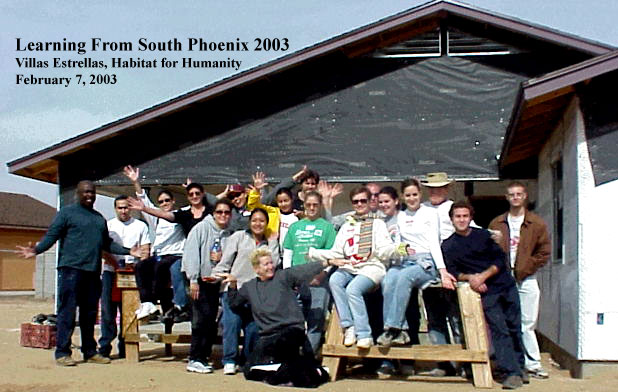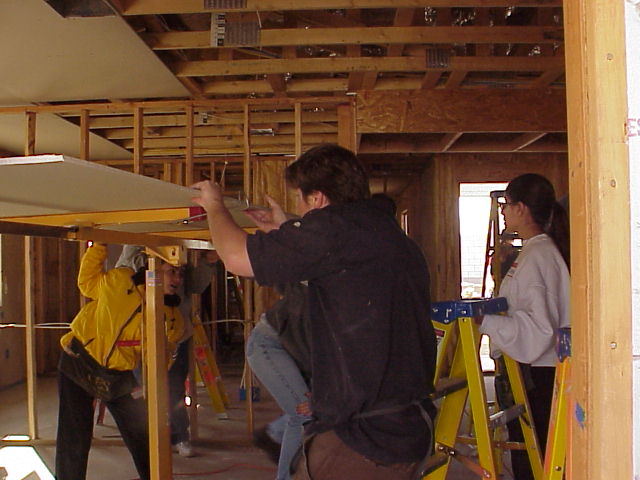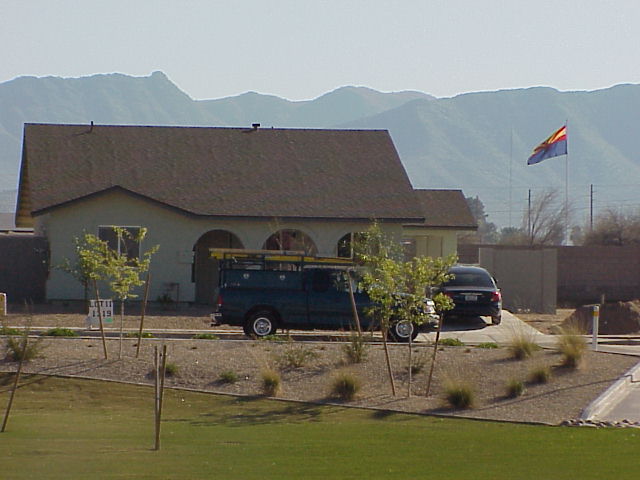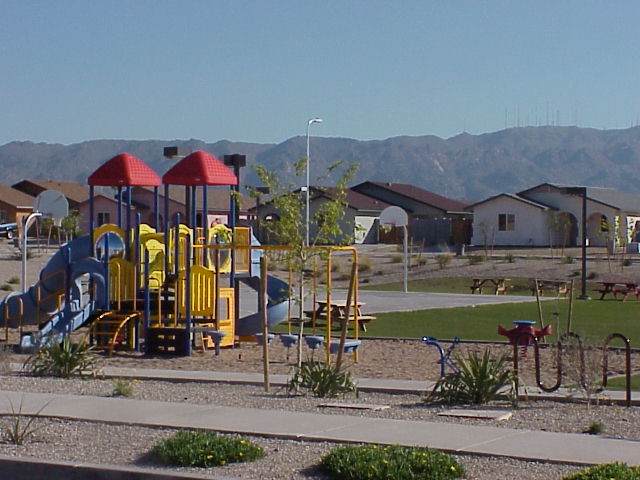![]()
Habitat for Humanity Project
Low Income Subdivisions with HOAs?

Our class spent February 7th, 2003 at a Habitat for Humanity site. Habitat for Humanity is a not for profit organization that has a goal to stamp out poverty housing. We hung dry wall in the morning at a rare Habitat for Humanity subdivision called Villa Esperanza near 15th Avenue and Southern. It involved some manual labor on the students’ part and many had white residue all over their clothes. We spent the afternoon listening to a interesting information lecture on Habitat for Humanity by the Arizona Executive Director of Habitat for Humanity, Christine Odum, and Noel Schaus.

Habitat for Humanity is helping lower income families, mainly Hispanic, in the Phoenix area obtain quality and affordable housing. Not every low-income family can qualify though. Some may be turned down due to debt constraints, too low of income, or too high of income. The interesting thing about Habitat for Humanity in Phoenix is that is helping to acquire housing for lower income families while housing and land around the Habitat for Humanity housing projects are being gobbled up by developers to be sold to middle and higher income people. Two whole Habitat for Humanity subdivisions have been started and are the first whole subdivisions that Habitat for Humanity has ever tried.

The two subdivisions do beg for a certain issue to be discussed, and that is the issue of what Joel Garreau calls a “Shadow Government.” The first of Habitat for Humanity’s subdivisions, South Ranch located near 16th St. and Baseline in South Phoenix, has been finished and a homeowner association established. There are some good and bad aspects to the homeowner association in South Ranch. One is that it has helped to put critics at bay by keeping property values high and keeping the community clean. But in long run it hurts the Habitat for Humanity organization by making property more expensive to acquire. The rise in property values will further deter other lower-income families from moving into the area. So, ultimately the Habitat for Humanity subdivisions are islands in a sea of middle to higher income areas. But in time the original owners will sell their Habitat for Humanity homes and middle to higher income people will move in, effectively closing the lower income housing islands. Ultimately, the homeowner association is a double-edged sword. It works to keep South Phoenix beautiful; but it hurts the cause of Habitat for Humanity and works against the American notion of freedom. It works against freedom because of all of the regulations that accompany homeowner’s associations. A homeowner may feel as if he/she is unable to express themselves due to the color restrictions on the homes, or hindered by nitpicky items such as where to put the satellite dish or television antenna.

Homeowner associations are not just issues for Habitat for Humanity subdivisions, but for every Phoenician. As more people move to the Valley and more subdivisions are built, more freedoms may be taken away. These associations are not governmental or private. What are they? They are created by developers who then hand over the organizations to the homeowners after a specified amount of time. The regulations are not even voted on by the homeowners, but are written by the developer. So, do these “Shadow Governments” as they are referred to by Joel Garreau have a right to govern? Or, are they just a hindrance to freedom? Homeowners in the Valley are increasingly not able to have a choice with new cookie cutter subdivisions, both middle to high end, blanketing the city. Will the homeowners ever fight back? In many homeowner associations, for a regulation to be changed would take at least an 80% vote. That number is extremely high, considering the diversity in views among the people that live in a community. So, even though homeowner associations work in some ways to better the community that is operates in, they also confiscate some freedoms that Americans have come to expect.
For Feedback Email: